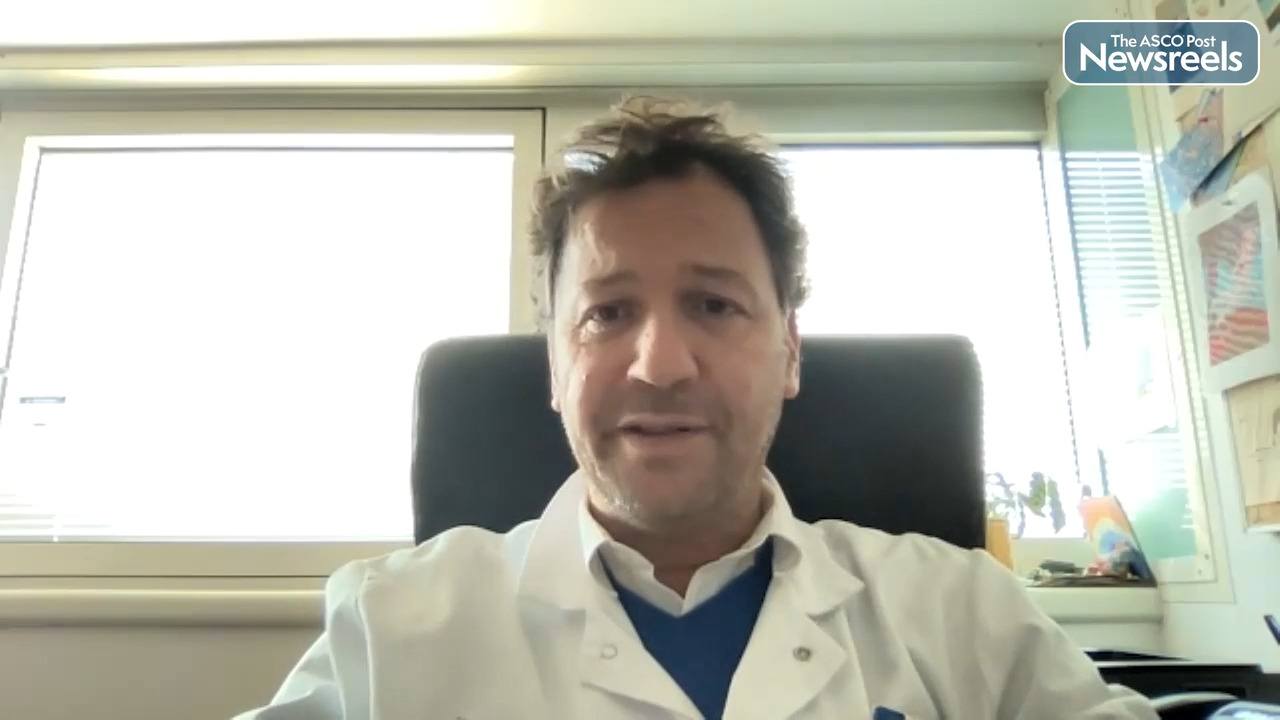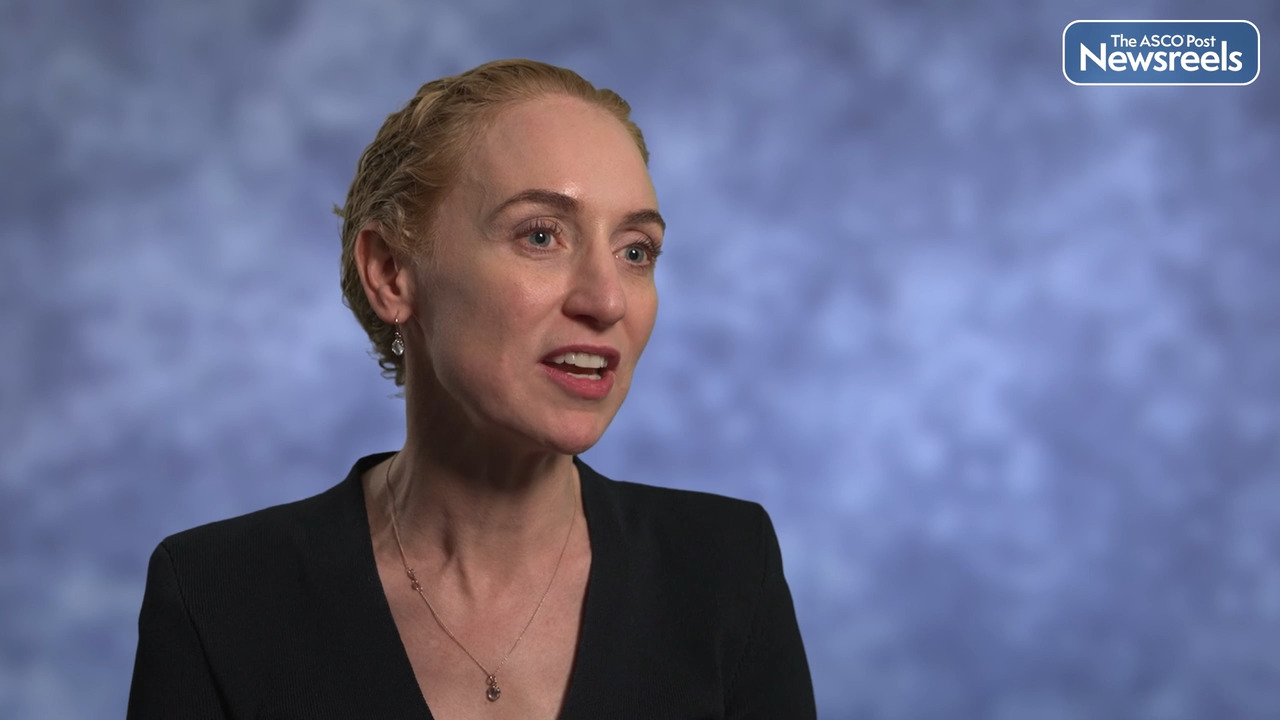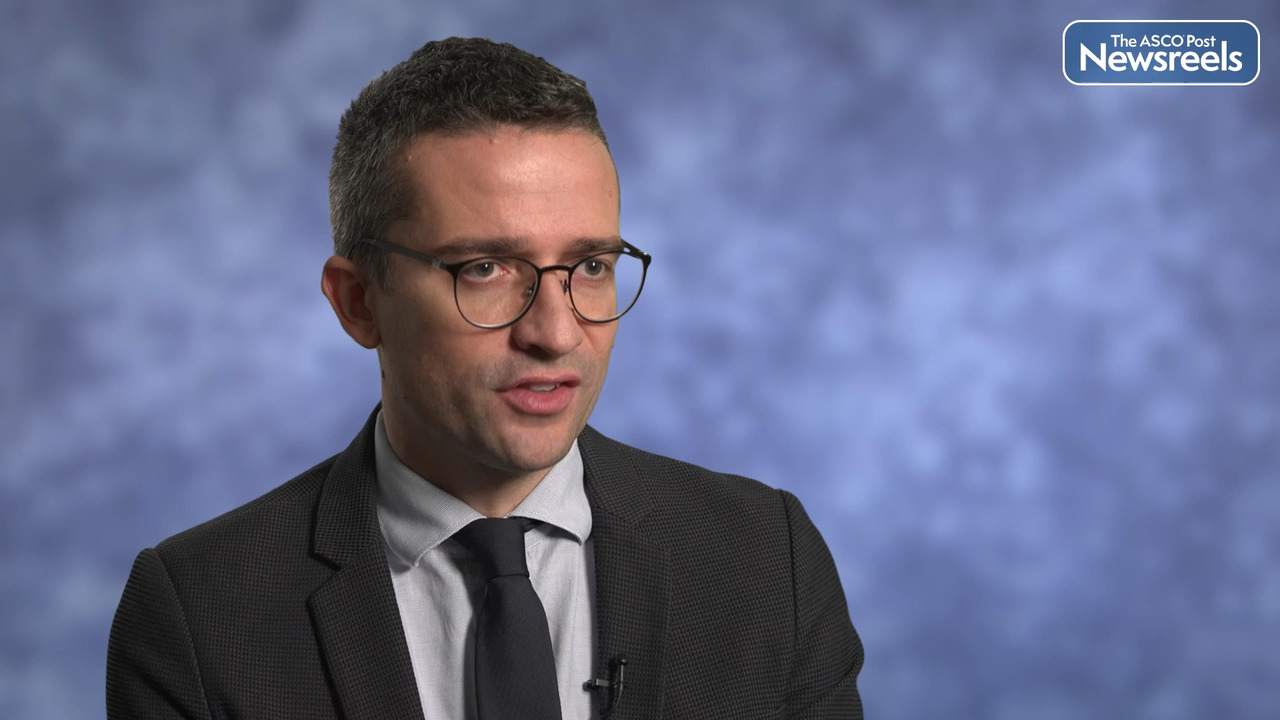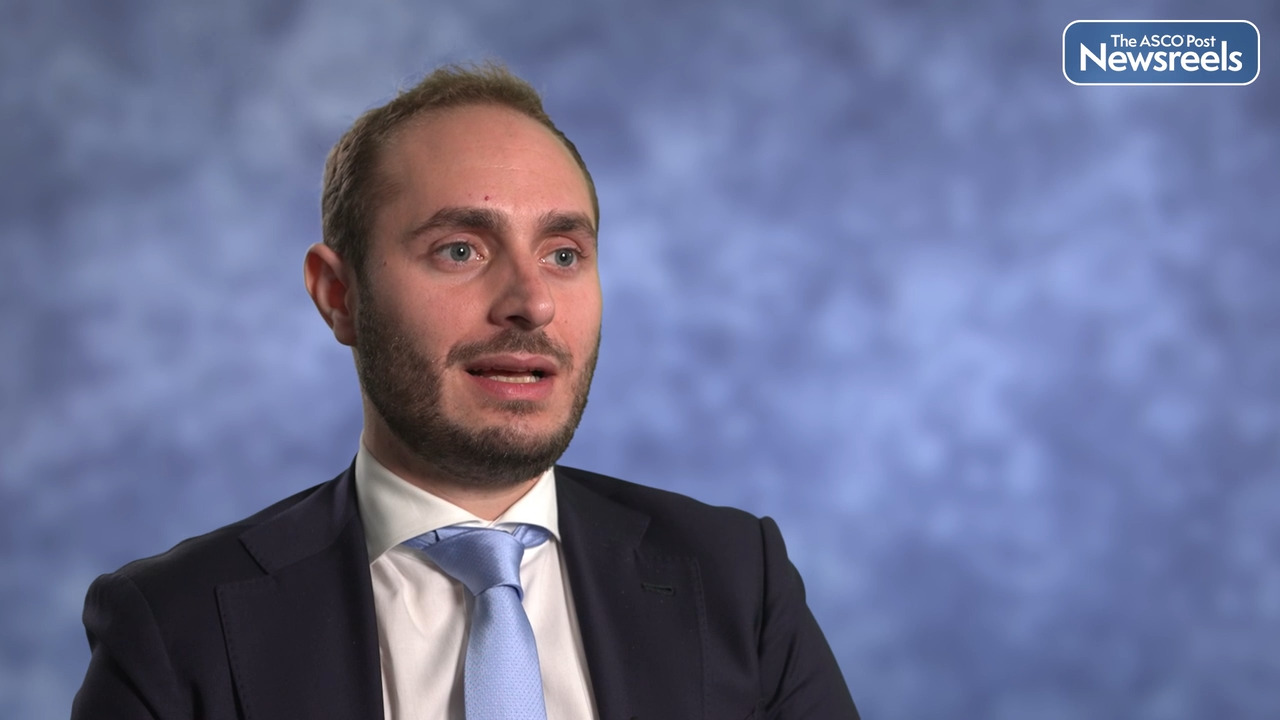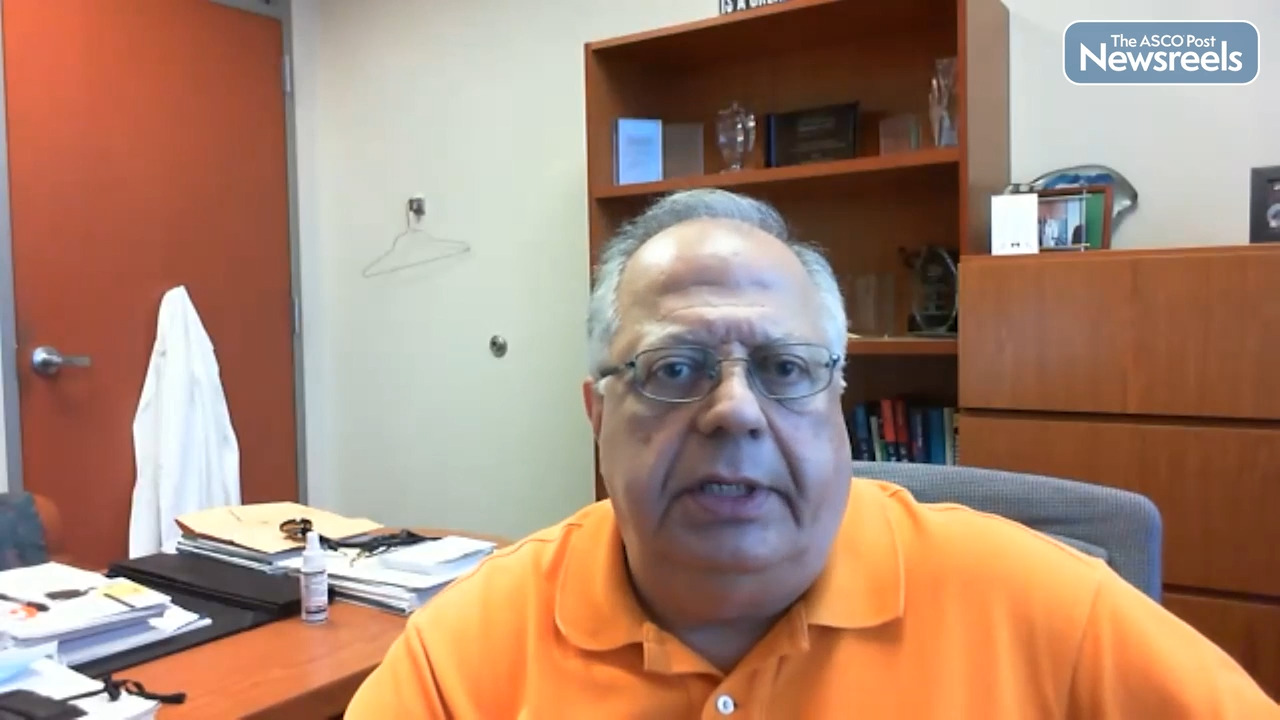Transcript
Disclaimer: This video transcript has not been proofread or edited and may contain errors.
There are two abstracts from ESMO 2022 in Paris that I would like to share with you.
The first one is ORIENT-31. This is actually a three-arm study. The first arm is sintilimab, which is an anti-PDL1 therapy together with a bevacizumab biosimilar with chemotherapy as arm A, arm B is actually chemotherapy with sintilimab only, and the third arm is the chemotherapy. Arm A and arm C comparison was previously reported, being positive and with a significant hazard ratio of 0.46. This time, at ESMO 2022, they reported the difference between arm B and arm C. They actually had an improvement of the median progression-free survival, about 5.5 months in the study arm and about 4.3 in the control arm. Hazard ratio is 0.72, statistically significant. But the question to me is how significant is significant? Well, first of all, EGFR mutation positive lung cancer patients, they actually don't have a good tumor microenvironment, so the single agent immunotherapy response rate on patients with EGFR mutation is actually about 10 to 12%.
The combination may add onto the value, but then the question is, would it be the better approach or should we use another approach? So to that, there are data on the combination of the antiangiogenesis, but bevacizumab together with immunotherapy and also the use of the anti-PDL1 therapy. This one does actually have biological senses because VGF potentially can change the tumor microenvironment. So under that there are data from IMpower150, which is a subgroup analysis, not large, but then the four drug regimen is definitely better than the chemo with the bevacizumab alone. And also from the ORIENT study, the degree of improvement, the response rate, is 40%, which is actually higher.
In my understanding, although sintilimab plus the chemotherapy is a positive study, but I don't think it's ready for clinical application. I will certainly wait for future randomized study, including Checkmate 722, which is chemo nivolumab versus chemo in EGFR-positive patients who failed the TKI, and also the KEYNOTE-789, which is the patient with, again, failed TKI randomized to chemo plus pembrolizumab versus chemotherapy. Until then, I actually would not just use routinely chemo plus IO, but then as a [inaudible 00:02:51], I may still consider the use of IMpower150. That is the first abstract on patients with EGFR mutation positive disease, how we may apply immunotherapy.
Then the second abstract is called SUNRISE. This one is actually adding anlotinib, which is an oral VEGFR inhibitor to sintilimab, which is an anti-PDL1.
The question is that a combination of antiangiogenesis and chemotherapy in patient without a driver mutation. This is a relatively small, randomized phase II study, about 98 patients were enrolled, the primary end point of response rate, looking at the control arm of chemotherapy at 25% versus the fact that the combination will be at 50%.
Let's ask the question, is this the right study to do? Although the outcome is positive, they reported response rate of sintilimab plus anlotinib to be 50%, which had reached their primary goal. But then, the control arm is wrong. This study started in 2019. At that time we already divided patient into PDL1 over 50%, 1% to 49%, and less than 1%. Patient with over 50% of PDL1 expression, the control arm would be single agent IO, not chemotherapy. Patient with the PDL1, 1% to 49%, the control arm should be chemo plus IO and not chemotherapy alone. In this particular study, although as a group, they tend to show that there is a response rate of 50%, but then there's no meaning compared to a control arm that's no longer relevant anymore. In a sense, I'm afraid that this study does not add on any information to my daily practice.
